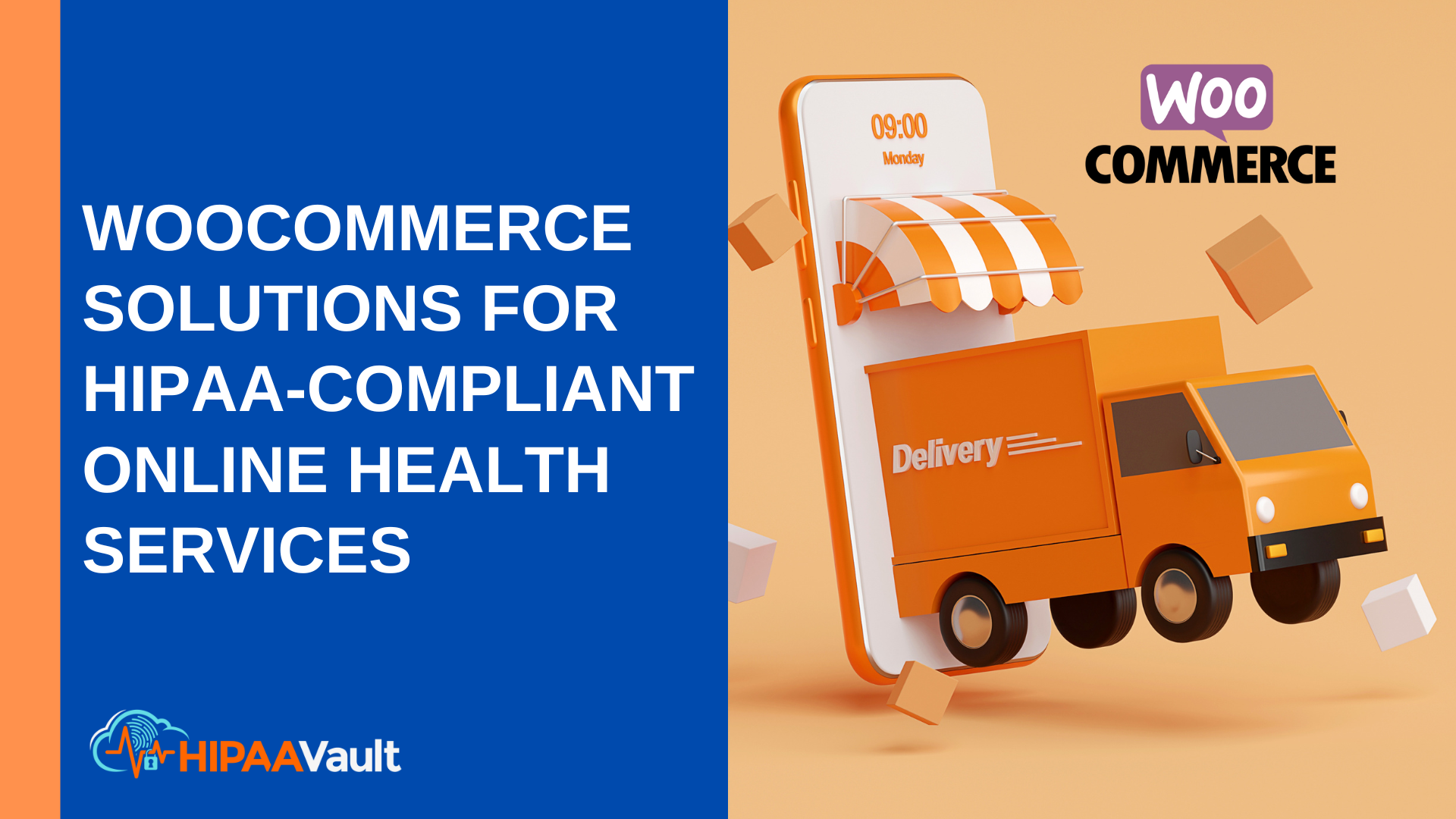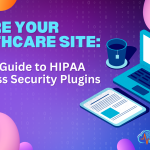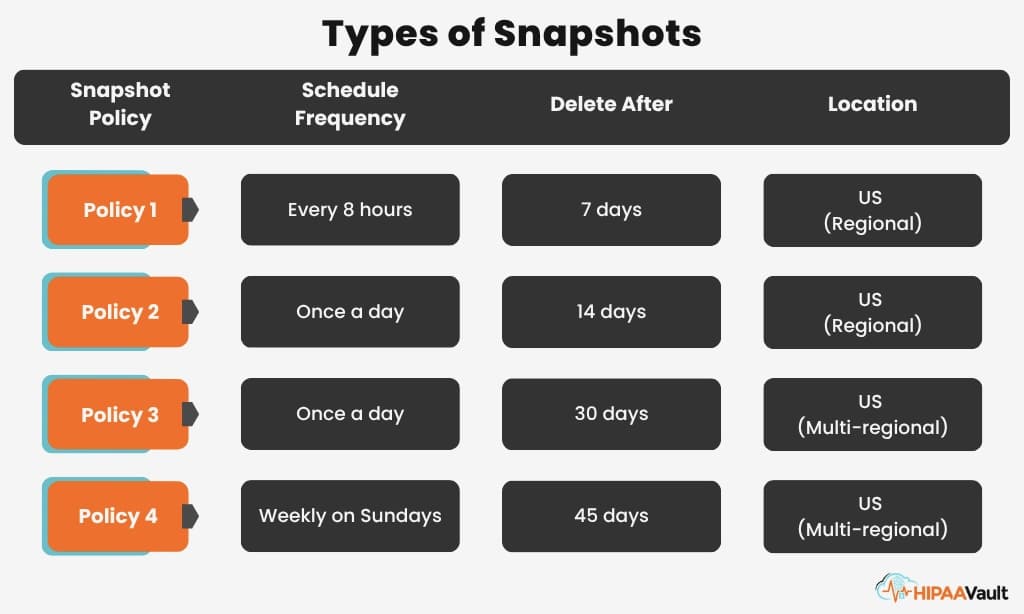In today’s digital-first world, healthcare organizations are swiftly moving routine interactions—from appointment scheduling to direct-to-patient sales—online. According to Spherical Insights, the global healthcare e-commerce market was valued at USD 301.8 billion in 2023 and is expected to grow to USD 1362.15 billion by 2033 (CAGR 16.27%) (globenewswire.com). At HIPAA Vault, we understand how critical it is to balance convenience with the stringent requirements of HIPAA. Implementing WooCommerce for your online health services can unlock new revenue streams and enhance patient satisfaction, but only if the platform is architected and managed with compliance at its core.
The Stakes of HIPAA Compliance in E-Commerce
Every time a patient provides information—whether completing an intake questionnaire or purchasing a home health device—they entrust your organization with their protected health information (PHI). Under HIPAA’s Privacy, Security, and Breach Notification Rules, covered entities and business associates must safeguard electronic protected health information (ePHI) using administrative, physical, and technical controls (hhs.gov, hhs.gov). Non‑compliance can result in civil monetary penalties of up to USD 50,000 per violation and criminal penalties including fines and imprisonment, while also eroding patient trust and damaging your reputation.
WooCommerce: Flexible but Not Compliant by Default
WooCommerce, the leading open-source e-commerce solution for WordPress, excels at product listings, payment gateways, and order management. However, out of the box it does not meet HIPAA’s encryption, access control, and auditing requirements. By default, WooCommerce stores customer details and order data—including any health‑related notes—in the WordPress database without encryption, audit logs, or role‑based restrictions (fdgweb.com).
Architecting a HIPAA-Compliant WooCommerce Environment
1. Partner with a HIPAA-Aware Hosting Provider
A hosting partner that signs a Business Associate Agreement (BAA) takes on shared responsibility for ePHI security. Your provider should offer full‑disk or database encryption (AES‑256), intrusion detection, automated patch management, and geographically redundant backups (hipaajournal.com).
2. Secure Payment Processing That Protects PHI
While payment card transactions processed solely for credit-card authorization fall under the §1179 exemption of the Social Security Act, any payment linked to health services requires a BAA-compliant gateway. Popular processors like Stripe and PayPal do not sign BAAs for PHI transactions (ssa.gov, vorys.com). Instead, opt for gateways such as Authorize.net, PaySimple, or USAePay, which provide tokenization and BAA support to ensure billing data remains secure.
3. Layered Encryption and Data Protection
HIPAA mandates encryption of ePHI at rest and in transit. Secure all patient-facing pages with TLS/SSL certificates, encrypt databases containing ePHI with AES‑256, and store encrypted backups with separate key management (brickergraydon.com).
4. Granular Access Controls and Auditing
Implement role-based permissions so employees only access data necessary for their roles. Enforce multi-factor authentication (MFA) for all administrative and privileged accounts. Maintain a detailed audit trail capturing every login, configuration change, and data export for a minimum of six years (hhs.gov).
5. Continuous Monitoring, Testing, and Training
Compliance is not a “set‑and‑forget” task. Conduct quarterly vulnerability scans and annual penetration tests. Use automated monitoring tools to alert on suspicious activity. Provide ongoing HIPAA training covering phishing identification, incident response, and breach notification procedures (reuters.com).
Elevating Patient Trust and Operational Efficiency
By implementing these measures, your WooCommerce store becomes a secure, patient-centric platform. Transparent security practices increase patient confidence, potentially boosting conversion and retention rates. Integrated scheduling, billing, and e-commerce workflows streamline operations and reduce administrative overhead.
Why Choose HIPAA Vault for WooCommerce Hosting?
At HIPAA Vault, we specialize in healthcare-grade hosting solutions designed for e-commerce. When you partner with us, you receive:
- A fully managed environment under a signed BAA
- Proactive security monitoring, patch management, and incident response
- Expert guidance on audits, policy documentation, and updates to evolving HIPAA rules
Whether you’re a telehealth provider, pharmacy, or medical equipment supplier, we tailor our services to align with your unique workflows and compliance needs.
Conclusion
Launching a HIPAA-compliant WooCommerce site demands more than installing a plugin—it requires a comprehensive strategy that spans hosting, encryption, access control, and ongoing vigilance. With HIPAA Vault as your partner, you can confidently expand your online health services, knowing that sensitive patient data is safeguarded according to the highest standards.
Ready to secure your WooCommerce store and deliver seamless, compliant online health services? Contact us and let HIPAA Vault take the complexity out of compliance.








